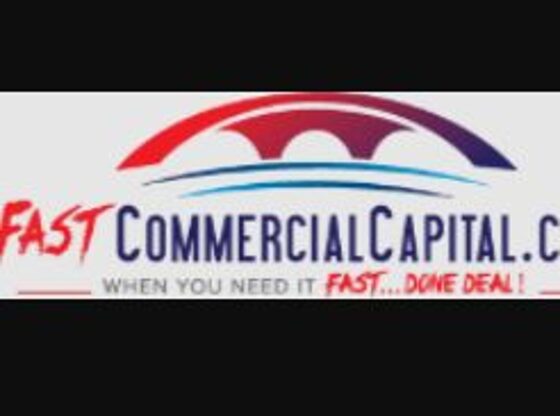In the dynamic world of business, securing fast commercial capital can be a game-changer. Whether you’re looking to expand operations, invest in real estate, or innovate with cutting-edge solutions, having quick access to funding is crucial. This blog post will delve into the various Fast Commercial Capital options available, focusing on commercial loans, real estate funding, and innovative financing solutions such as hard money and bridge loans. We’ll provide valuable insights for business owners and investors in major U.S. cities like San Diego, Austin, and Miami.
Understanding Fast Commercial Capital
Fast commercial capital refers to financing options designed to provide businesses with quick access to funds. These funds are typically used for various purposes, including expansion, equipment purchases, real estate investments, and working capital. The key advantage of fast commercial capital is the speed at which funds can be obtained, often in a matter of days rather than weeks or months.
Commercial Loans:
Commercial loans are a staple in the business financing landscape. These loans are provided by banks, credit unions, and alternative lenders, and they offer businesses the capital needed for growth and development. Here are some key features of commercial loans:
- Flexible Terms: Commercial loans come with flexible terms that can be tailored to the specific needs of a business. This includes varying interest rates, repayment schedules, and loan amounts.
- Variety of Uses: These loans can be used for a wide range of purposes, including purchasing inventory, expanding operations, and refinancing existing debt.
- Secured and Unsecured Options: Depending on the lender and the borrower’s creditworthiness, commercial loans can be either secured (backed by collateral) or unsecured.
Real Estate Funding:
Real estate funding is a specialized type of financing aimed at purchasing, developing, or renovating commercial properties. This type of fast commercial capital is particularly valuable in thriving real estate markets such as San Diego, Austin, and Miami.
- Traditional Mortgage Loans: These are long-term loans used to purchase commercial properties. They typically have lower interest rates and longer repayment terms.
- Construction Loans: These loans are specifically designed to fund the construction of new commercial properties or major renovations. They often have higher interest rates due to the increased risk.
- Real Estate Investment Loans: For investors looking to expand their portfolios, real estate investment loans provide the necessary capital to acquire new properties quickly.
Innovative Financing Solutions:
For businesses needing immediate capital, hard money and bridge loans offer innovative solutions. These types of fast commercial capital are particularly useful when traditional financing options are not viable or when time is of the essence.
- Hard Money Loans: These are short-term loans secured by real estate. They are typically provided by private investors or companies and have higher interest rates due to the increased risk. The primary advantage is the speed of funding, often within a few days.
- Example: In San Diego, a business owner needing quick funds to purchase a commercial property before it goes off the market might turn to a hard money lender for a swift loan.
- Bridge Loans: Bridge loans are short-term loans intended to bridge the gap between the purchase of a new property and the sale of an existing one. They provide immediate capital and are usually repaid once long-term financing is secured.
- Example: In Austin, a real estate investor might use a bridge loan to secure a new investment property while waiting for a traditional mortgage to be approved.
Both hard money and bridge loans are instrumental in fast-paced markets like Miami, where the ability to act quickly on opportunities can significantly impact success.
Benefits of Fast Commercial Capital
- Quick Access to Funds: The primary benefit is the speed at which businesses can access the capital they need. This is crucial for seizing opportunities and maintaining competitive advantage.
- Flexibility: Fast commercial capital options offer flexibility in terms of loan amounts, repayment schedules, and usage, allowing businesses to tailor financing to their specific needs.
- Growth and Expansion: With quick access to funds, businesses can invest in growth and expansion opportunities, from new product lines to additional locations.
Choosing the Right Fast Commercial Capital Option
When considering fast commercial capital options, it’s essential to evaluate the specific needs of your business and the characteristics of each financing solution. Here are some factors to consider:
- Loan Amount: Determine how much capital you need and ensure the financing option can provide it.
- Interest Rates: Compare interest rates across different lenders and products to find the most cost-effective option.
- Repayment Terms: Consider the repayment schedule and ensure it aligns with your business’s cash flow.
- Speed of Funding: Evaluate how quickly you need the funds and choose a lender or product that can meet your timeline.
Conclusion:
In conclusion, fast commercial capital is a vital tool for businesses looking to seize opportunities, expand operations, and stay competitive in dynamic markets. Whether through commercial loans, real estate funding, or innovative solutions like hard money and bridge loans, businesses in cities like San Diego, Austin, and Miami can benefit immensely from quick access to funds.
By understanding the various options available and choosing the right financing solution for your needs, you can streamline your financing and empower your business to achieve its goals. Remember to evaluate your specific requirements, compare different products, and work with reputable lenders to secure the best possible fast commercial capital.
Additional Resources
- Small Business Administration (SBA): Offers resources and information on various financing options for businesses.
- Local Chambers of Commerce: Can provide insights and connections to local lenders and financing solutions.
- Financial Advisors: Consulting with a financial advisor can help you navigate the complexities of commercial financing and choose the best option for your business.
By leveraging these resources and understanding the fast commercial capital options available, you can position your business for success and growth in today’s competitive market.


